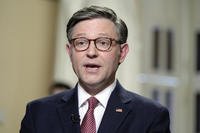The chief of staff of the Air Force, Gen. Norton Schwartz, called out General Electric and Rolls Royce today, saying that they should consider paying more out of their own pockets if they wanted to keep alive the second engine program for the Joint Strike Fighter.
Schwartz, speaking at the National Press Club, said there may be savings to be had through competition between the GE/Rolls partnership and Pratt & Whitney over the life of the program but he doubted the country could afford the money today o save money down the road. "The question is, can we afford it in the short term," he said.
This sounds an awful lot like the Air Force would be happy to keep the program running but wants GE/RR to show their commitment by lessening the service's pain when it faces a grim set of budget choices.
GE's take: "GE and Rolls-Royce have already invested a considerable amount of their own money into the program. It's very difficult to internally fund the engine if the F136 is not a JSF program of record. The SAC-D report called the F136 a "near model program," and we have offered a unique fixed-price offer for early production engines which shifts the risk for early production to the contractors," said spokesman Rick Kennedy.
On the KC-X airborne tanker, Schwartz offered a definite waffle when asked when the contract would be awarded. "In my view it is more important to get it right than to do it fast," he said. Asked if that meant the contract would be awarded by the end of the year, he smiled and repeated himself. Perhaps the competition is extremely close and the service wants to make sure their decision is as protest-proof as possible
Finally, in what prove to be the most enduring news of today's luncheon, Schwartz made it very clear the military must increase the amount service members and retirees pay for health care. As Defense Secretary Robert Gates and other top Pentagon officials have said repeatedly, the amount paid by military personnel has not increased since 1985. "I think it is inescapable that a change will have to be made," said Schwartz, coming closer than any other senior official to actually saying let's increase it.








